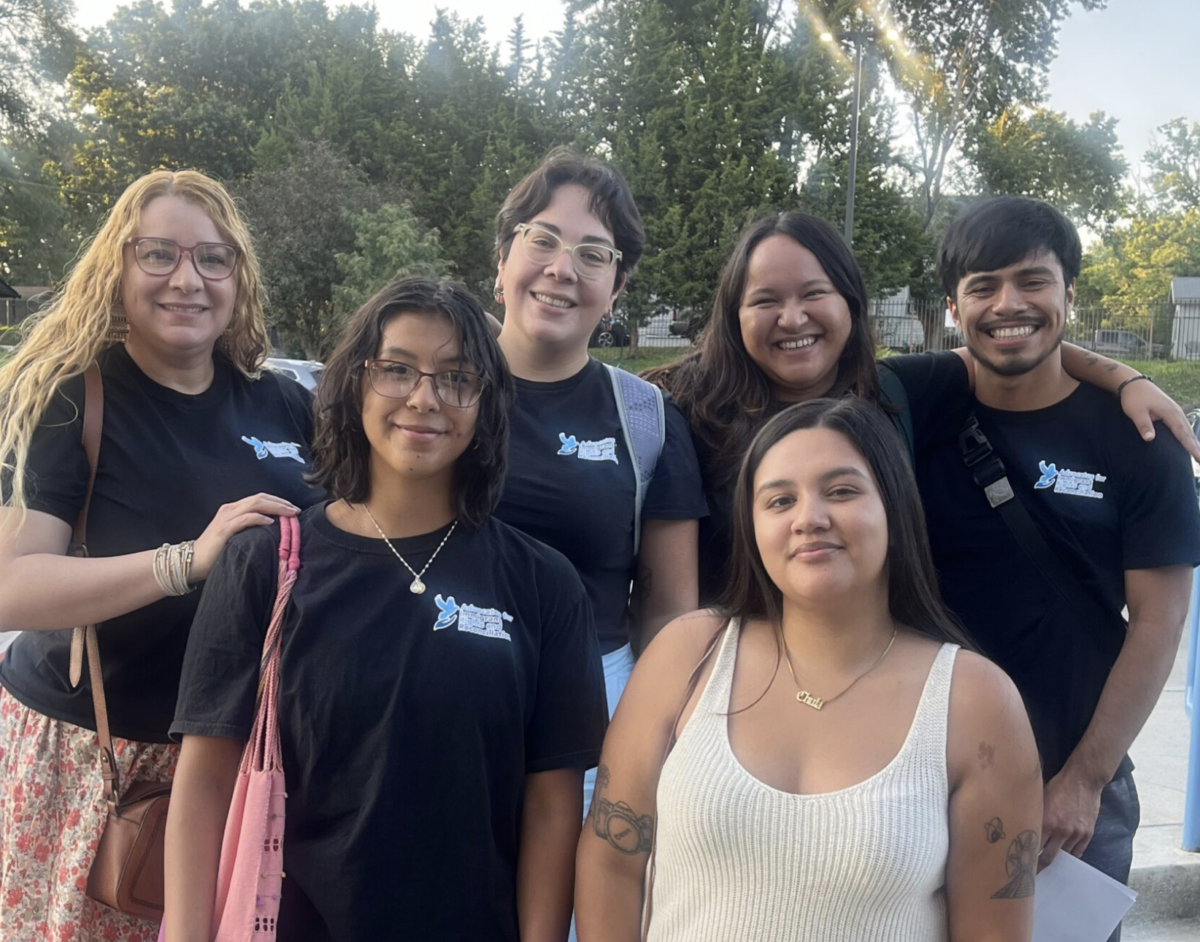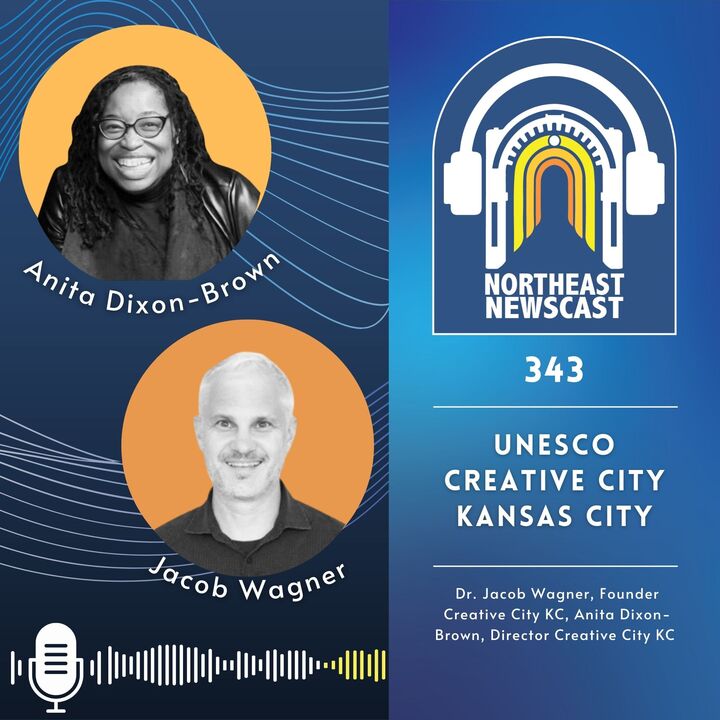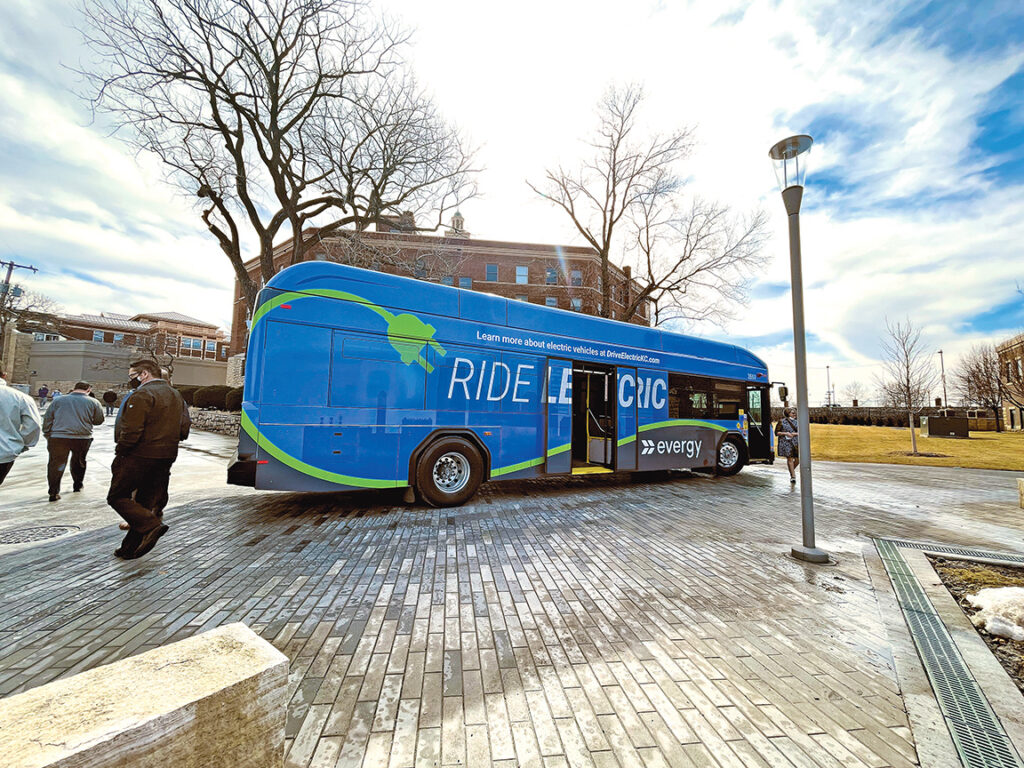
By Abby Hoover
On Monday, U.S. Representative Emanuel Cleaver, II (D-MO), along with Mayors Eileen Weir of Independence, Mo., representatives from the Unified Government of Wyandotte County and Kansas City, Kan., Jackson County Executive Frank White, Jr., and Robbie Makinen, CEO of KCATA, announced their plans for a major bi-state infrastructure project that will create greater opportunity for the entire region through sustainability, mobility, and economic development. The announcement was made at Kansas City University on Independence Avenue.
The Bi-State Reinvestment Corridor is a cooperative effort to create and implement a transformational strategy to enhance mobility, transform communities and reduce carbon emissions by focusing on a wide range of federal and local investments on a key regional transit corridor.
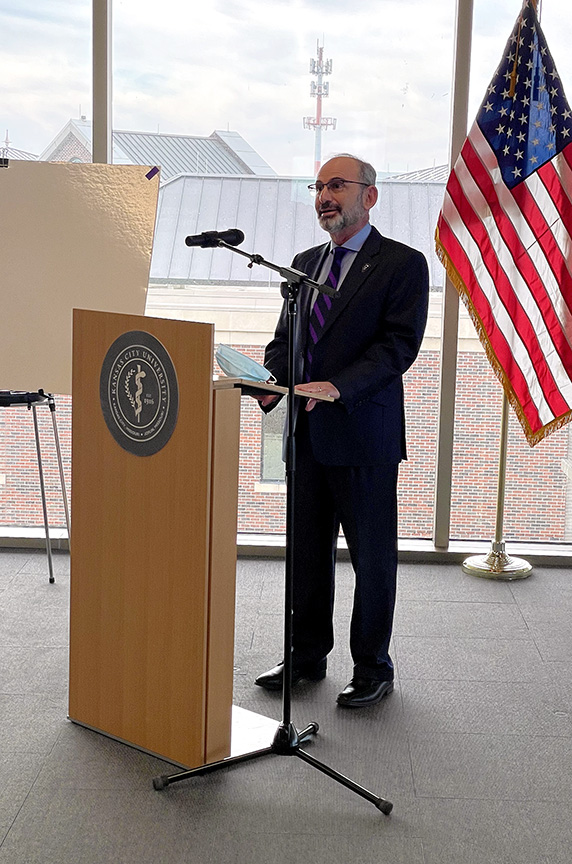
“Far too often our programs and planning are limited by our invisible jurisdictional lines,” County Executive White said. “This coordinated, comprehensive regional plan eliminates those lines and increases our chances of receiving federal funds that are essential to making these plans a reality. Jackson County is committed to building a better and more equitable community for everyone. With the support of Congressman Cleaver, Representative Davids and my fellow elected officials across the region, we are paving the way to provide increased connectivity, opportunity and economic sustainability for residents and businesses no matter what side of the state line they call home.”
The 24-mile corridor traverses two congressional districts, Missouri’s fifth and Kansas’ third, and connects Wyandotte County in Kansas and Jackson County in Missouri, running through Kansas City, Kan., to Kansas City and Independence, Mo., along State Avenue, Independence Avenue and Truman Road.
“Economic mobility, public health, access to employment and housing, and workforce development are cornerstones of our strategic plan ‘Independence for All’. The Bi-State Sustainable Reinvestment Corridor provides limitless opportunities within our city and our region for many years to come,” Mayor Weir said.
Funding will come through the $1 trillion Bipartisan Infrastructure Law and federal grants. Cleaver, who says the cooperation will be a “magnet for money,” has met with Transportation Secretary Pete Buttigieg, who is excited about the unusual plan, the president, and other cabinet members.
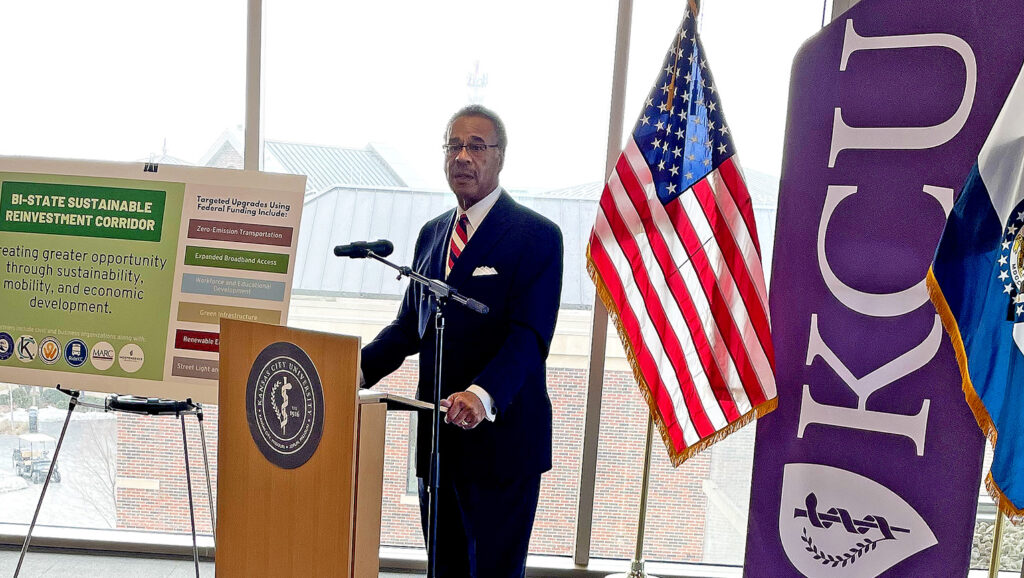
“President Biden’s Bipartisan Infrastructure Law is a once-in-a-generation opportunity for our entire region to create sustainable communities, provide greater opportunity for economic mobility, and ensure our jurisdictions have the energy efficient infrastructure necessary to remain competitive throughout the 21st century—but coordination is critical,” said Congressman Cleaver. “By coming together and uniting behind a comprehensive plan to expand the region’s zero-emission transportation, build out our green infrastructure, connect communities in a sustainable way, and facilitate economic development through clean energy, we believe this corridor can attract key federal investments that will be a catalyst for greater economic growth while cutting down on emissions and harmful pollution.”
This initiative will identify opportunities, approaches, and funding to demonstrate how sustainable communities might be developed in and around a high-capacity, zero-emission transit corridor. This program will support the region’s Climate Action Plan and the regional transit vision of improved access to housing, healthcare, employment and education, and may be replicated in other corridors nationally and in the Kansas City region.

The plan includes connections to the existing KC Streetcar, Troost and Prospect MAX services; connections to major activity centers along the route like the Village West District, Kansas City, Kan., Community College, Downtown Kansas City, Kan., and Kansas City, Mo., Kansas City University, and 47th and State/East Village/Independence Transit Centers, historic Independence Square and major historic neighborhoods. Approximately 84,980 jobs and 90,810 residents will be within a half mile of the corridor and directly served by the improvements.
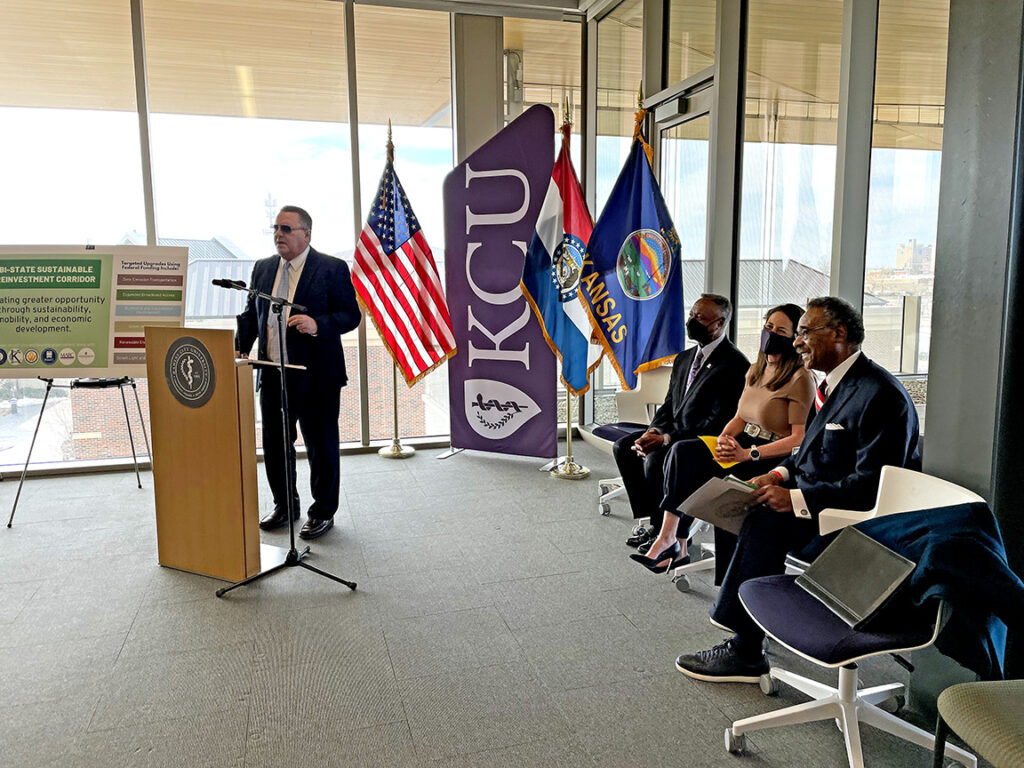
“The Bi-state Reinvestment Corridor is directly aligned with KCATA’s mission to provide equitable access to jobs, medical care, affordable housing and education,” Makinen said. “We look forward to working with Congressman Cleaver, other congressional delegates and the community to build this reinvestment corridor that includes workforce development, green infrastructure and valuable transit improvements.”
Leaders say the program will position the corridor for early action on large-scale, strategic investments via a variety of new federal funding opportunities and accelerate implementation of planned community-based investments. It will demonstrate the potential of integrated investments in zero-emission transit, green infrastructure, affordable housing, workforce development, childcare access and other basic services to enhance neighborhood vibrancy, affordability, equity and connectivity.
“We are a group of collective dreamers and through uncommon cooperation, we are poised for success,” Cleaver said. “We are involved in the preservation of this already badly damaged planet, and so we’ve created the sustainable corridor.”


